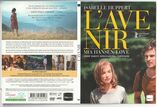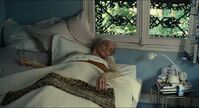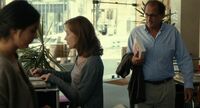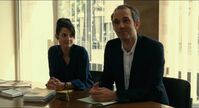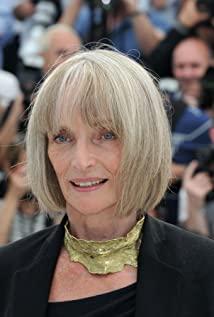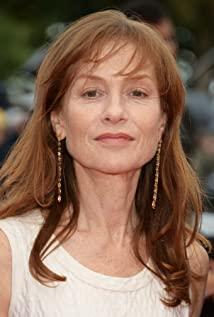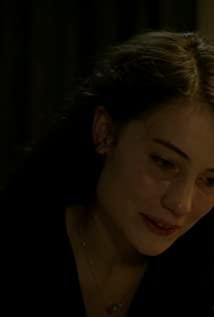01
The film "Future Things" focuses the lens on the topic of "midlife crisis".
"Middle-aged crisis" has actually been shown in many movies. Unlike teenagers who radically resisted and revealed their true feelings when they encountered troubles in the process of growing up, middle-aged people's attitude when facing a crisis is more forbearance. On the one hand, when people have a certain life experience in middle age, they can already penetrate the paleness of confrontation with fate and the world. On the other hand, even the difficulties faced by middle-aged people are not as clear as the troubles of teenagers. Often there will be a kind of helplessness of "drawing the sword and looking at the heart at a loss".
Therefore, in "The Future", the emotional expression of the "midlife crisis" is also restrained. The heroine, Natalie, is a high school philosophy teacher. The midlife crisis she faces is a career rebellion from her students and a textbook publisher's insistence on changing the cover of her textbook to something "more modern" against her will. ; In the family, it was her husband Hans who told her that he was cheating one morning, and received a phone call one night to learn of his mother's death.
As an elegant middle-aged French woman who studies philosophy and has a rich spiritual world, Natalie also shows an uncompromising attitude towards the dog's middle-aged life most of the time in the film. She wears her hair neatly combed most of the time, walks with her head held high, and reads philosophy books on the subway.
Of course, there are times of embarrassment. For example, when she is about to move out of the house where she and her husband are vacationing, and her mother has been sent to the nursing home, Natalie calls the nursing home to ask her mother's physical condition and walks barefoot. In the mud, look for the weak phone signal in the area. This scene is very similar to "Lost in Translation", which also tells about the midlife crisis, the tall Harris has to curl up in the shower before the shower in the low Japanese hotel.
Both films invariably show the embarrassment of middle-aged people in the minutiae of their lives, and in this way expose their fragile grace that protects them like a shield. That feeling is like a gentleman in a suit and leather shoes accidentally showing his torn socks.
02
Then, following the slightest flaw, you will find that in this film, which took a lot of time to shoot the wind in spring, the sunshine and lawn in the afternoon, there has always been a kind of not-so-bright anguish secretly surging, its expression form It can be irritability, tiredness, or tears, but the process of these occurrences is hidden, you can vaguely feel it, but you can't grasp or touch it.
For example, in the scenes at home, although the filming is of ordinary daily life, it can clearly feel a kind of irritability, accompanied by the frequent contact of Natalie's high heels with the floor. I can see my back sweating; another example is a mother who suffers from depression, her body is thin, and most of the time she is lying listlessly, lying on the bed, lying on the sofa, the sense of substitution also makes me feel the body. He was heavy, and wanted to lie down in the movie theater. For example, although the film used so many brushes to describe the struggles and tossing of her mother, the final announcement of her death was just a call to Natalie from the nursing home. phone.
In the next scene, at the church mother's memorial service, Natalie pulls out a philosophy book and reads the passages in it. Next is what I think is the best part of the movie, the scene cuts to Natalie sitting on the bus on the way back from church, with tears in her eyes, and the background sound is still the same as she was reading in church A philosophical passage: "My heart seeks true goodness to follow, and nothing is more expensive to me than eternity". At this time, she happened to see her ex-husband walking arm in arm with her new lover on the street outside the car window, but her reaction was a sneer after drying her tears.
The reason why I like this clip is because I feel that this clip contains all the complex emotions of this movie: there is confusion about middle-aged life, there is indifference to those who have caused harm to me, and of course, there are The attachment of one's own spiritual world, in this film, the sustenance of this attachment is philosophy.
03
I don't know philosophy, but I want to write about the philosophy in the movie, because it's the philosophies that are crumbled and mixed into a midlife crisis that makes this midlife crisis seem less like a must in everyone's life. The farce, it is precisely those philosophies, that gradually restore the color of the once dark background in front.
The philosophy discussed in "The Future", I think, is precisely those three ultimate questions: "Who am I? Where do I come from? Where do I go?" And what drives the film forward towards this core topic is the emotional support that has been forbearing in front of me. After more than half of the progress bar, there were two belated crashes.
The first time was when Natalie lived in the student Fabian's commune after her divorce and the death of her mother. When the lost black cat came back to her at night, she petted it and sobbed in front of the bed. The second was to visit her daughter who had just given birth in the hospital. When Natalie was holding the baby, her daughter suddenly cried and asked Natalie to return the baby to her. The crying stopped when the child was lying on the bed again and the daughter was stroking the baby on her side.
The two crying scenes are all similar actions. I always feel that the director is using such echoes as a metaphor for something. My understanding is that these two scenes are actually reflections of the middle-aged Natalie's state of mind. She suddenly realized that she is just an outsider in this world. Standing in the middle of her life, she has started to lose constantly, and she also I saw the ending that I would go home empty-handed in the end.
In the hospital, Natalie was empty-handed when she returned her grandson to her daughter; in the dark night of the commune, she stroked the black cat that was integrated with the night, as if she was stroking the empty night.
On the way to the commune, Natalie sat in the car of the student Fabian and said to the other party: "My child has left, my husband has left, and my mother has died. Suddenly there is a kind of freedom that has never been seen before." But if Thinking from another perspective, I will feel that the freedom Natalie said has a desolate feeling, a sudden weightlessness after getting away from the important people and things in life.
But the special thing about "The Future" is that the protagonist is a philosophy teacher, which makes her not be crushed, alcoholic or even give up on herself in the face of a midlife crisis, but always keep a clear head to think. But even sober, she still can't escape everyone's ultimate fate: loneliness. It is said that "the end of all science is philosophy", but they don't know that philosophy also has an end, that end is the night Natalie touched, and the empty hands after returning the baby to her daughter, that is the nothingness that everyone has to face, This nothingness is not relieved by one's knowledge of philosophy.
So what are the answers to those problems in life that cannot be solved even by reading philosophy? The movie doesn't give the answer directly, or maybe the final scene is the answer. At the end of the movie, the picture seems to become warm for the first time. Natalie spends Christmas with the children, sits at the dining table and eats turkey together. When the grandson is crying, she goes to coax her grandson, and suddenly there is a smell of fireworks. It seems that the director is telling the audience that most of the time, what he has to do is not to ask for meaning, but to "exist" in every ordinary moment. [This article comes from the end of the public account Zhang]
View more about Things to Come reviews



